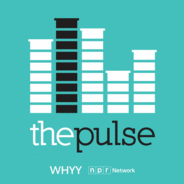Science is all about observing the world. But how do you study something you can't see, smell, or hear — like the tiniest particles all around us? How do you test a new energy source when it doesn't really exist yet? These are the challenges that the world of physics often faces. You can come up with theories, using modeling and calculations, and devise some kind of experiment on paper to investigate things. But then you have to translate those ideas into tangible, real-world experiments, which is often incredibly challenging. On this episode, we peek behind the curtain of multimillion-dollar physics experiments that are changing the way we understand our world — and hear about some of the big challenges they face. We dig into the origins of the James Webb Space Telescope, talk with xkcd cartoonist Randall Munroe about some of his more outlandish — and complicated — physics calculations, and hear from accelerator physicist Suzie Sheehy about the physics experiments that changed the world.Learn more about sponsor message choices: podcastchoices.com/adchoicesNPR Privacy Policy

Wissenschaft & Technik
The Pulse Folgen
Go on an adventure into unexpected corners of the health and science world each week with award-winning host Maiken Scott. The Pulse takes you behind the doors of operating rooms, into the lab with some of the world's foremost scientists, and back in time to explore life-changing innovations. The Pulse delivers stories in ways that matter to you, and answers questions you never knew you had.
Folgen von The Pulse
168 Folgen
-
Folge vom 18.08.2023Bringing Physics from Theory to Practice
-
Folge vom 11.08.2023Will A.I. Take Your Job — or Make It Better?Whether you're a student or a doctor, a plumber or a truck driver, a university lecturer or a radio reporter, artificial intelligence is changing the way we work. For some workers, A.I. is taking over tedious and time-consuming tasks, freeing them up to focus and get more done. For others, it's led to questions about what A.I. means for the future of work — or whether, in a few years, they will have jobs at all. What are the limits of A.I.'s abilities? How can it help us do our jobs better rather than simply replacing us? What checks and balances do we need to control its development? And are there any jobs that will not be affected? On this episode, we explore how A.I. is transforming the way we work — for good and for bad. We hear stories about the future of robot plumbers, the push to integrate A.I. into medical education, how physicians are responding to its increasing presence in medicine, and the dystopian threat of neurotechnology.Learn more about sponsor message choices: podcastchoices.com/adchoicesNPR Privacy Policy
-
Folge vom 04.08.2023Skin Care and the Quest for Eternal YouthIt seems like every day, new skin care products hit the market: lotions, serums, collagen boosters, light therapy, at-home lasers — potions and procedures designed to coax our skin into peeling and healing, plumping and renewing. Their promise: wrinkle-free faces, poreless, dewy skin, and an eternally youthful glow.But there's no one magic bullet to flawless skin. And what is this chase really about?On this episode, we get into the science of skin care, looking at what works, what doesn't, and what dermatologists have to say about the latest frontiers in our quest for eternal youth. We hear stories about a new treatment that uses stem cells to rejuvenate skin, some shady aspects of the Botox business, and why K-beauty has taken global skin care by storm.Learn more about sponsor message choices: podcastchoices.com/adchoicesNPR Privacy Policy
-
Folge vom 28.07.2023What's Behind Health Care Shortages?If you've tried to book a doctor's appointment lately, chances are, it's been challenging. Many practices are not taking new patients, or open slots are weeks or months away. For some patients, it has meant gritting their teeth through pain and anxiety.For others — like people living in rural areas or trying to see in-demand specialists like psychiatrists or neurologists — it can feel almost impossible to get an appointment at all, posing real threats to their health. Medical organizations warn that we're experiencing a physician shortage — and that things will only get worse.On this episode, we look at this, and other, shortages plaguing the world of medicine, from medications to donated blood. We investigate what's causing this scarcity, and some potential solutions. We'll hear stories about the surprising origin of the physician shortage, and why we still have unemployed MDs sitting at home; what's behind the recent shortages of several high-profile medications; and how researchers are trying to address the chronic shortage of donated blood.Learn more about sponsor message choices: podcastchoices.com/adchoicesNPR Privacy Policy
